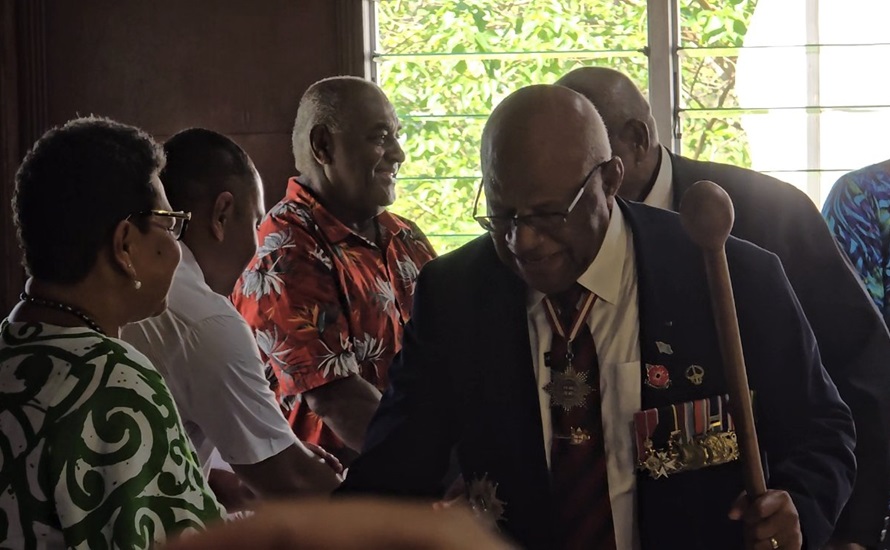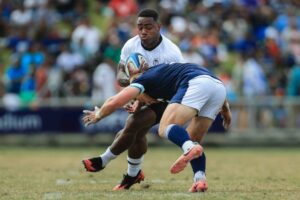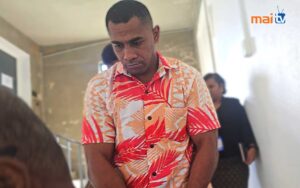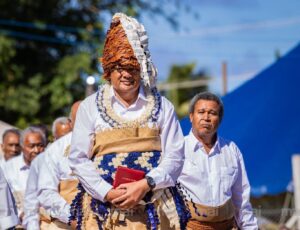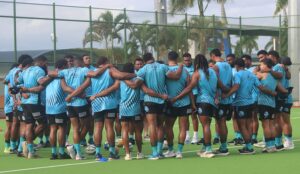Fiji’s Prime Minister Sitiveni Rabuka today acknowledged the impact of his 1987 coup on Fiji’s history, taking responsibility for the cycle of coups and unrest that followed his actions nearly 40 years ago.
Addressing military personnel and families of those affected by the 2000 mutiny at a Reconciliation and Restoration Ceremony at Queen Elizabeth Barracks, Rabuka took responsibility for the sequence of coups that followed his own, including the 2000 and 2006 events.
Held at the Tuvasu Hall, the event, held to mark 24 years since the November 2000 military mutiny, drew former and current military officers, government officials, and grieving families, concluding an eight-month reconciliation effort that began in March this year. Among those gathered was former CRW leader Shane Stevens.
“All these things began on the 14 May 1987. I’m to bear the blame,” Rabuka stated after the speeches by family members of some of the eight soldiers who died during the height of the 2000 coup.
All of the eight families were represented except the family of CRW Soldier Selesitino Kalounivale.
Rabuka’s appeal was unlike his previous apologies, as he linked his actions in 1987 to the later coups by George Speight and Voreqe Bainimarama, recognising his role in what he called “the journey of disobedience.”
“I pray, God will grant you the spirit of forgiveness, to forgive me and those who followed my orders,” he added, seeking reconciliation not only for himself but for those who followed in his footsteps hopeful that it will mark a fresh start for the country.
Rabuka’s address, while deeply personal, was also a call to Fiji’s traditional leaders to acknowledge the nation’s past with honesty. Speaking to Great Council of Chiefs Chair Seruvakula, he urged, “Let the Chiefs know of today’s occasion,” highlighting the role of traditional authorities in moving Fiji forward.

